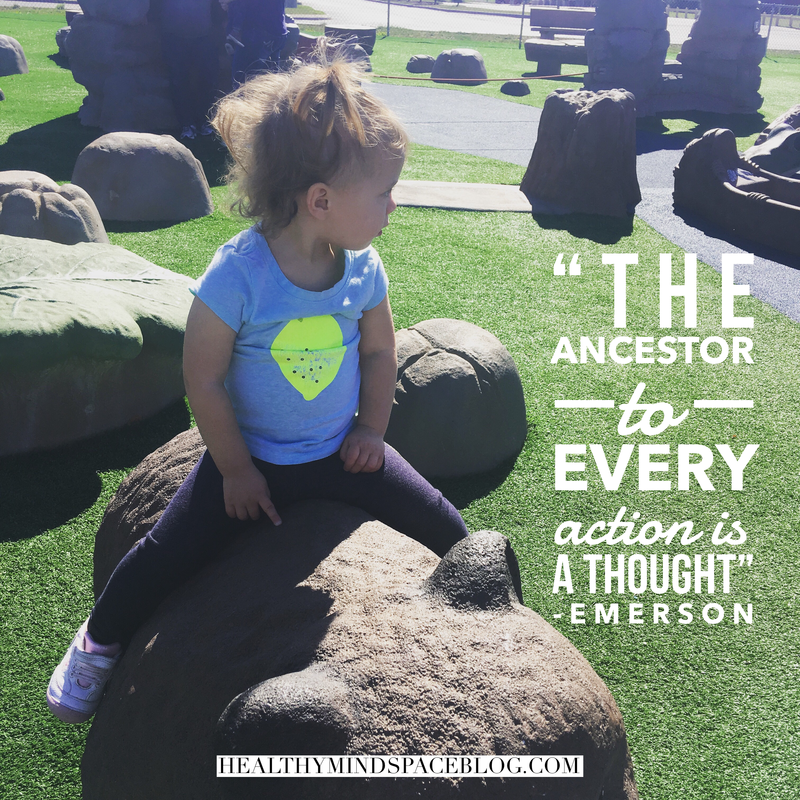 Are We Passing Judgement With “Good Job?” There was an article published on Scholastic.com not too long ago about the long-standing benefits of random acts of kindness. It is worth the five minutes to read. Why? Well, you may just change your language approach as I have with my little ones; not a complete overhaul, just some adjustments to consider. Like many people, I have always been all about random acts of kindness and acknowledging them. It seriously makes my heart smile. But there are pieces that were missing from my acknowledgements; the action, the feeling and/or the why. Here is an example from a recent experience with my Minis: Tomilyn watched as Ellie dropped her baby on the ground. Tomilyn ran over to pick up Ellie’s baby and hand it to her. “Thank you, Tommie,” Ellie smiled. Tommie replied, “Welcome.” (That alone makes my heart skip a beat at the age of 2!) But rather than specifically acknowledging the behavior, I smiled and said, “Good job, Tommie.” I unknowingly may have passed judgement by saying that to be “good” she had to pick up something. That’s not what I was going for. I really wanted to reinforce the act of kindness so that it happens again, and again. To acknowledge the behavior that I noticed, all I had to do was tweak my language slightly. “Tommie, you just helped Ellie with her baby. Thank you!” or “Tommie, Ellie is smiling because you made her happy. You picked up her baby.” Think about it-we do this with ease when there is a squabble. “Ellie you just hurt Tommie’s feelings when you pushed her.” Ok, sometimes we may respond by saying, “Don’t push your sister!” but a more mindful response is typically one that includes the action and the why-as mentioned above. Making a purposeful change in responses to behaviors that removes the so-called judgement we inadvertently place on children could help increase the rate at which children understand what an act of kindness truly is. And kindness breeds more kindness! “Recent research shows that kindness counts in more ways than the obvious growth of morality. We are not meant to be completely independent or dependent, but to give and receive in mutual interdependence. Random acts of kindness —and regular acts of courtesy — foster the development of the higher centers of our brain. From these higher centers, our children grow to be readers, writers, scientists, artists, and mathematicians, exploring the wonders of the world.” ~Scholastic.com With love, Christy Lynn Giving It a Try...
Avoid Judgment Phrases Such As (or at least add to them): Good job, way to go, I like what you are doing, don’t do that, that is naughty Replace with Acknowledging What You Notice: When you notice an act of kindness in your home or classroom, acknowledge it by including the action, feeling and/or why. It may be more challenging than you first thought, but don’t give up. The lasting effects can be worth the transition. Bella, you used kind words when asking for help. Joseph, you are patiently waiting in line for lunch. You are helping to keep others calm. This is by no means a suggestion to completely retire the (sometimes automatic) “Awesome work!” or “Way to Go!” phrases, but rather to balance them with simple and clear acknowledgements of feelings they produced as a result of their kind behavior. Let us know how this mindful approach to noticing behaviors goes for you!
2 Comments
Kindness given is kindness returned Snowball Effect: descriptive of an entity or situation where something once small and relatively insignificant grows exponentially at a swift pace, engulfing everything in its path. As it descends down a snowy hill, it gathers more snow and whatever leaves, sticks, etc. are in its way. ~urbandictionary.com Is this not something that we live for as parents? As educators? Moments when we realize that our children are empowering one another and creating a positive impact. If only were as easy it sounds! ;-) As a pre-kindergarten teacher, we try our best to model acts of kindness and recognize them publicly when we witness tender actions being taken by children in our school community. However, often it comes primarily from the staff members recognizing the students, not necessarily the students recognizing each other. This was the path that my TA & I were on until December of this year when I came across an old picture. It was a photo of six of my fourth grade students speaking in front of a school-wide PBIS (Positive Behavioral Interventions & Supports) assembly. They held up a self-designed “SNI” logo, surrounded themselves with stacks of sticky notes and showcased smiles filled with pride and hope. *SNI: Sticky Notes Incorporated. The idea that the kids were empowered to present to the school was one of student to student recognition. If you witnessed or experienced a random act of kindness, you were to jot it down on a sticky note and plop it onto the hallway walls. The goal being to cover the walls with kindness from end to end. And boy, did we do just that...and ensured a custodial nightmare for two weeks! That memory challenged me. Yes, they were 10 year olds mindfully recognizing one another, but why couldn’t my 4 & 5 year olds try that, too? So we did. Shifting the ownership to the kiddos to cheerfully give and receive compliments took on a world of its own. Are they sometimes literal, such as “L told me that she likes my shirt,” and her pants, her shoes and her book bag...LOL. Of course they are! But they still make each other smile and they are purposeful moments created by being aware of the present. As the days go on, the compliments and acts of kindness are gaining depth. Realizing that we were witnessing a true “snowball effect,” as new children joined in on creating moments of kindness each day, we don’t want to stop the descension on the snowy hill. There are still people to pick up along the way! With some basic white copy paper cut into circles and a bulletin board, our Mountain of Kindness is taking on an incredible slope of its own. In Kindness, Christy Lynn “Make an effort to live in cheerful kindness. When you are kind to others, you receive kindness in return.” ~Dr. Wayne W. Dyer |
the blog space
I'm obsessed. This is fabulous. LOVE that you are doing this. The new way of being a student forces us to think outside the box and approach how we teach more dynamically. ~Derek, Father of 2 and Elementary School Principal
Author
Just a girl with a dream to collectively build a healthy mind space for children, while creating a healthier mind space for ourselves. Archives
June 2022
Categories
All
Copyright Healthy Mind Space 2019
|
Healthy Mind Space
- Home
- About
- Coaching for K-4 Students
- Resources
-
Register for Workshops
- Mindfulness Based Interventions PreK-5 Educator Workshop
- Mindfulness Based Interventions & MTSS on August 23, 2022
- It Starts With YOU: Mindfulness Coaching for Educators (Team)
- Yoga + Mindfulness for the Preschool Classroom >
- On-Site Staff Workshop: Launching a Mindful Classroom
- Kids Yoga: One Class Registration >
- Women’s Athletic Tank
- Women’s Casual Top
- Contact
|
Healthy Mind Space offers mindfulness coaching and workshops to professional educators, preschools & childcare centers, and families throughout the Rochester, NY area. By practicing mindfulness in our everyday lives, and through intentional interactions in our classrooms, I believe we can help kids develop a greater capacity for kindness, compassion, positivity, self-confidence and the opportunity to achieve their full potential. |



 RSS Feed
RSS Feed

